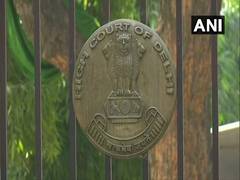
New Delhi: After given two days of custody parole to Member Parliament Engineer Rashid to attend the ongoing budget session the Delhi High Court on Tuesday fixed February 24 to hear bail plea of MP North Kashmir who is lodged in Tihar Jail in a terror funding case.
Justice Vikas Mahajan set the hearing date after the High Court’s registrar informed the court that the Supreme Court (SC) had clarified on Monday that the National Investigation Agency (NIA) court handling the case could hear Rashid’s bail plea.
Rashid had approached the High Court earlier, claiming he had no option for relief after the NIA court left his bail application unresolved due to its inability to handle cases involving MPs and MLAs, following his election to the Lok Sabha last year.
The Delhi High Court on Monday granted custody parole to Baramulla MP Rashid Engineer, who is accused in a terror funding case, to attend the ongoing parliament session on February 11 and 13.
The court clarified that the custody parole was granted due to Rashid’s current lack of a remedy regarding the adjudication of his bail application, which is delayed because of the issue surrounding the designation of a court.
Earlier, the Delhi High Court acknowledged that the Registrar General has filed an application with the Supreme Court of India regarding the jurisdictional authority to hear Rashid’s bail plea in an NIA case.
This issue arose after the Special NIA Court (Trial Court) recently declined to hear the matter, citing that it falls under the jurisdiction of the MP/MLA court since Rashid Engineer has become a Member of Parliament.
NIA recently opposed the interim bail plea of Baramulla MP Rashid Engineer, arguing that it was not maintainable and should be dismissed on merits. In its reply, the NIA said, “The present case is a classic case of misuse of Interim Bail provision which has to be used sparingly when intolerable grief and suffering is displayed by the concerned Accused.”
NIA further stated that the Applicant or Rashid Engineer has not specified in what manner he will be able to serve his constituency and vague averment has been made that he intends to “serve the constituency” and therefore the same is not a valid ground for grant of any relief whatsoever. “Moreover, the work done by the Applicant/ Accused is put to strict proof to the work done by the Applicant/ Accused in his constituency,” it said.
